
Face-to-Face with Fair Trade
As a pioneer of the fair trade movement, we believe that sustainable incomes can help to end poverty. But it’s not a quick or easy solution. So we are committed to advocacy and educating consumers about the true power of their purchases. When volunteers, board members and store staff meet artisans in person and hear their words, it is often a life-changing experience. Connecting with artisans widens perspectives and empowers us all.
Goshen College in Goshen, Indiana offers students a unique international study opportunity. The Study Service Term (SST) is a semester-long program that sends students to developing countries. There, they serve local communities and experience day-to-day life on a personal level. Through his SST, second-year Goshen student Isaac Longenecker had the opportunity to meet makers working with our fair trade partner Manos Amigas. He shared the following reflection on the impact of fair trade.
As a child I often had the chance to visit Ten Thousand Villages stores because my mother was a volunteer leader in Lake County, Illinois. I had a wondrous time browsing through crafts that had the unique ability to attract the attention of kids and adults of all ages. Even now there are a more than a few items in my house from Ten Thousand Villages, like the nativity scene perched on our mantel every Christmas.
As a second-year student at Goshen College studying in Peru, for the first six weeks in Lima, I’ve visited various communities located within this vast city of 10 million. Lima has seen an explosion in population with people coming from the Amazonian jungle in the west and the Andean mountains that run down the spine of Peru. They come for education, work, hope for a better life. Most of those who make the trek reap little of these rewards as they are immediately shunted to the sandy outskirts of the city.
Leaving behind poor but self-sustaining communities, the artisans who come bring only their culture, heritage and relevant expertise. Many of the artisans are forced to give up their craft as they have the artistic skill but lack the capital to start a business.
I’ve had the pleasure of visiting various communities, participating in service projects and, most importantly, studying the culture, history and natural world of Peru. My classmates and I recently had the wonderful opportunity to visit and learn about Manos Amigas. This organization, created in 1991, exports Peruvian handicrafts and offers alternative tourism in Peru as well. Ten Thousand Villages sustains Manos Amigas in many ways, by buying nearly 60 percent of their exported items.
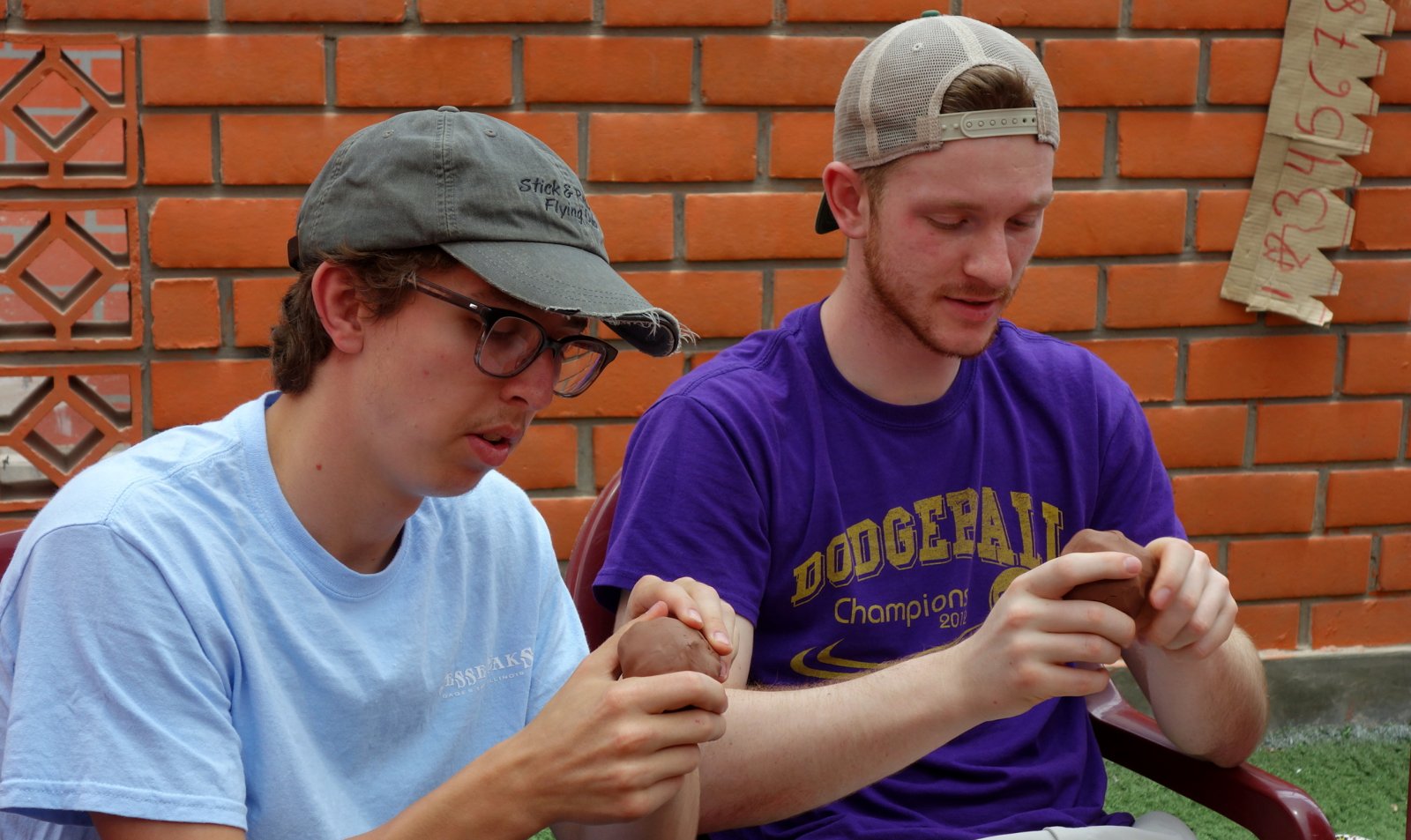
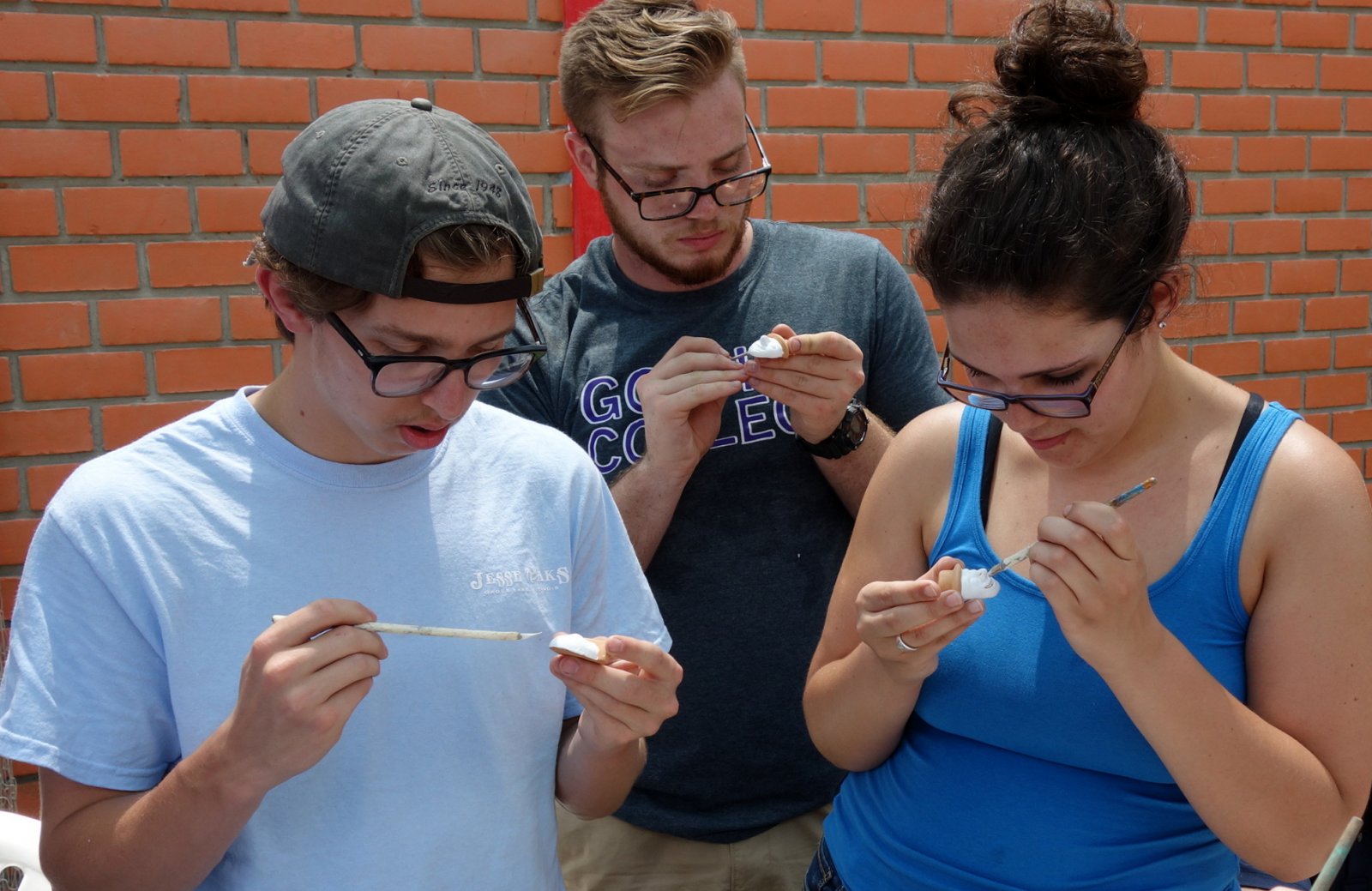
These wares vary with every shipment but Manos Amigas regularly exports musical instruments, jewelry, knitted items, ceramics, painted glass, wind chimes and nativities. The vast majority (almost 85 percent) of all their exports are nativities. Made of all sizes these “retablos” are expertly handcrafted, with some delicately housed inside of an egg shell. Working with associations, cooperatives and family workshops, Manos Amigas employs as many as 800 artisans throughout the year.


Since 1999 Manos Amigas has been certified Fair Trade with the World Fair Trade Organization. This is no small feat considering there are only a few others with that certification in Peru. There is much need for more Fair Trade because of its incredible impact and relevance in developing countries. The principles upon which organizations like Manos Amigas function allows for Peruvian artisans to compete in an international market shaped by mass production, advanced technology and overzealous capitalism. The Fair Trade marketplace is distinguished by the following qualities:
Creation of opportunities for the economically disadvantaged
Manos Amigas employs producers from across the country of Peru. Recently one of the producers left the organization as it started to successfully sustain its own business. This allowed Manos Amigas to support a different producer, with greater needs. Another important aspect of this is the payment of 50 percent up front to the producer and the other 50 percent upon receipt of the crafts. In effect, these artisans now have the capital to leverage themselves just as an ordinary, larger business is capable.
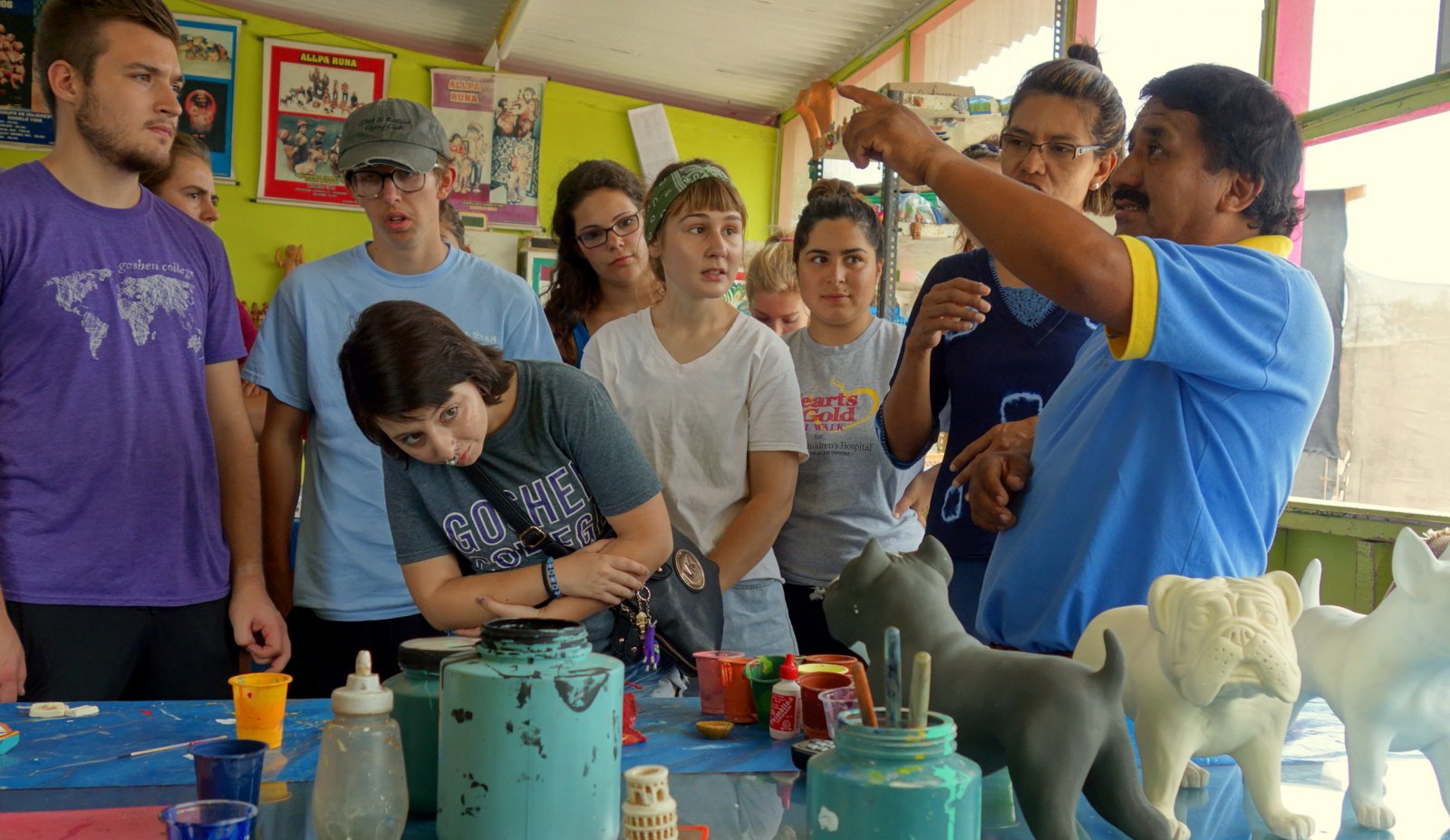
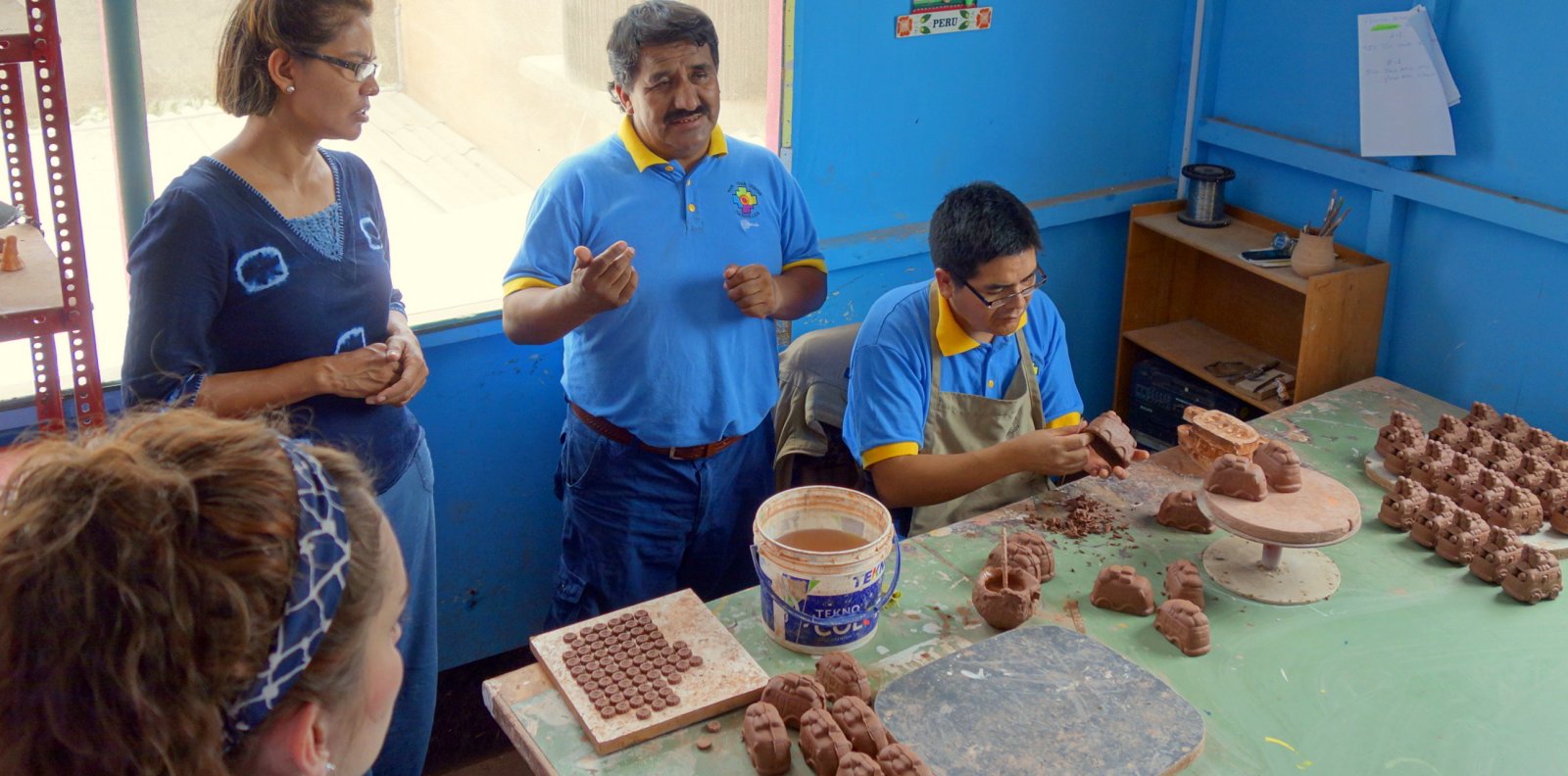
Capacity building
This work includes training the artisans in various business skills relevant to today’s competitive market. These skills may be as basic as using email in business communication or as complex as identifying trends in the market and pricing their items appropriately.

Commitment to fair labor and nondiscrimination
Manos Amigas promotes good working conditions and allows no child labor or forced labor. Manos Amigas is committed to balance in gender equality. At present 55 percent of the artisans are women, and 45 percent men.
Respect for the environment
Manos Amigas requires toxic materials like lead be removed from all production processes. They also monitor and control the disposal of waste and byproducts making sure they are properly handled. Moreover, Manos Amigas has vertically integrated this system and are now regulating these conditions not only for their artisan producers, but for the material suppliers of the artisans as well.
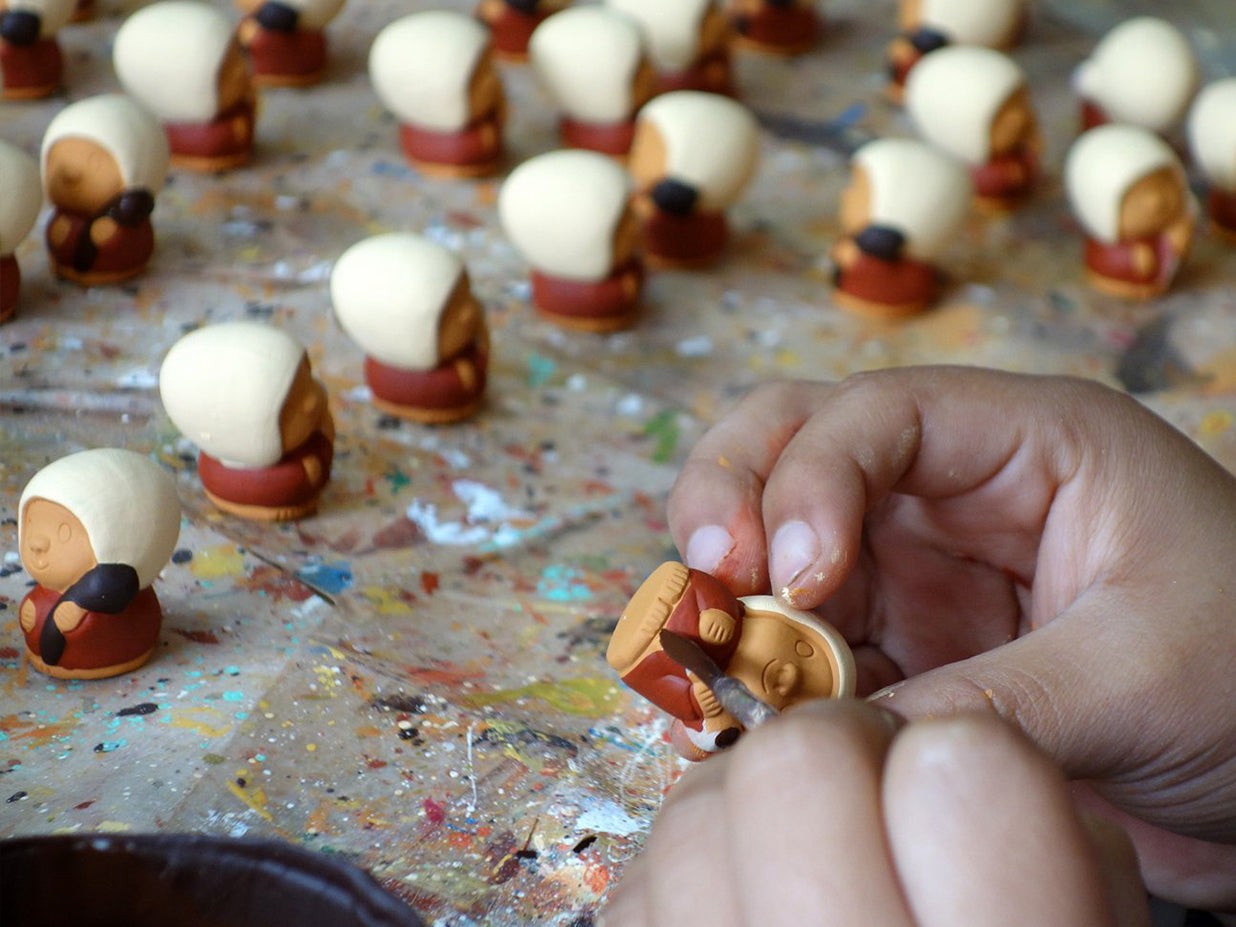
Walking through a Ten Thousand Villages stores is an adventure in itself, viewing in one place a smorgasbord of goods from cultures all across the world. Yet after seeing these pieces as items on a shelf, and now, as unique works of culture held in the hands of an artisan with a story, the significance changes. So I encourage you, if you are purchasing one of these items at Ten Thousand Villages, to learn as much as you can about the culture it came from and the unique story it holds.
Fair trade does a fantastic job at connecting artisans across the world to a market in which their products can be sold. Yet, as consumers we play an important role as well; our responsibility does not end at the store counter with a receipt. We must remember the multifaceted role we play as we are not just sustaining a livelihood, but a culture. Each piece is a treasure of culture and identity waiting to be unlocked by its holder. There are a near infinite number of unique stories waiting to be heard.
Isaac, thank you for sharing your story!





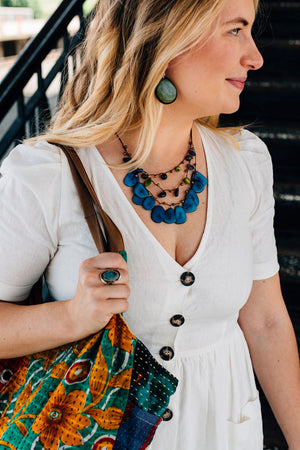


Leave a comment